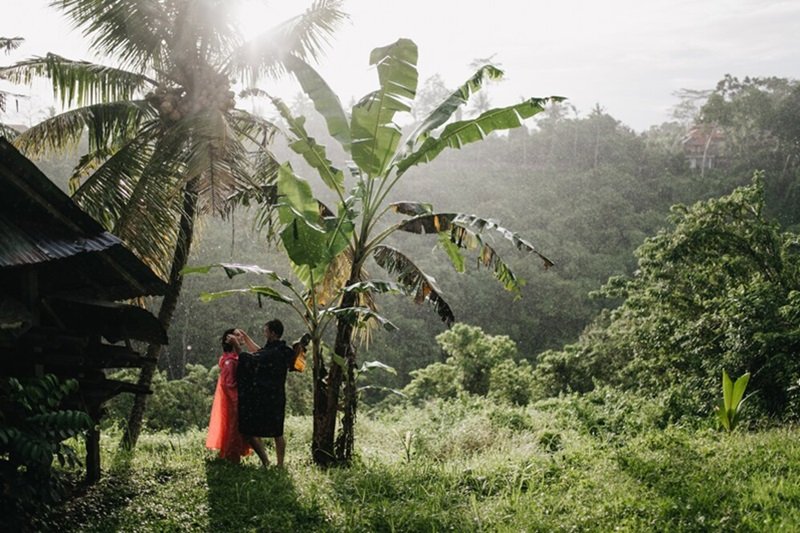For solo travelers seeking meaningful experiences beyond the usual sightseeing, volunteering on organic farms through WWOOF (World Wide Opportunities on Organic Farms) has become an increasingly popular choice. It’s more than just budget travel—it’s a deep, immersive journey into sustainable living, community building, and self-discovery. Whether you’re a city dweller looking to unplug or an aspiring agriculturist keen on learning the ropes, WWOOFing offers a transformative path that aligns beautifully with the global movement of eco agro tourism.
This guide is crafted for solo adventurers ready to embrace farm life, live simply, connect deeply, and explore the true essence of slow, conscious travel.
What is WWOOF?
WWOOF, short for World Wide Opportunities on Organic Farms, is a global movement linking volunteers with organic farmers. It enables travelers to work on farms in exchange for food, lodging, and hands-on learning. The concept is simple: spend a few hours a day helping on the farm, and in return, gain insight into organic agriculture, eco-conscious living, and the daily rhythm of rural life.
The idea was born in the 1970s in the UK and has since expanded to over 130 countries, including India. WWOOF India hosts a growing number of organic farms from Himachal Pradesh to Kerala, with Maharashtra emerging as a favored destination thanks to its lush landscapes, warm hospitality, and established farming culture.
Why WWOOFing is Perfect for Solo Travelers
Traveling solo can be exhilarating, but it often comes with moments of isolation. WWOOFing bridges that gap by placing you in a communal, purpose-driven environment. Here’s why WWOOFing is an ideal choice for solo travelers:
- Built-in community – You live and work with hosts, fellow volunteers, and local farm workers. Shared meals and stories quickly turn strangers into friends.
- Skill-building – Whether it’s composting, planting, harvesting, or building irrigation systems, you learn practical, earth-friendly skills.
- Safe and structured – Farms are vetted by the WWOOF network, providing a sense of security and structure without losing the spontaneity of solo travel.
- Mindful exploration – It’s a form of eco agro tourism that supports local economies and environmental sustainability—values that align with conscious travelers.
- Inexpensive and enriching – You cut down on travel costs significantly while engaging in culturally enriching work.
How to Get Started with WWOOFing in India
- Join the WWOOF India network
Visit wwoofindia.org and register as a volunteer. Membership is paid and gives you access to a list of certified host farms across the country. - Browse host profiles
Look for farms that match your interests—permaculture, animal husbandry, natural building, or traditional farming. Profiles include location, expectations, accommodation details, and reviews. - Communicate clearly
Reach out to hosts directly. Ask about working hours, daily routines, hygiene facilities, internet access (if needed), and dietary preferences. Setting expectations is key to a fulfilling stay. - Pack thoughtfully
Carry weather-appropriate clothing, sturdy shoes, mosquito repellent, eco-friendly toiletries, and an open mind. Many hosts appreciate volunteers who bring seeds, books, or small gifts from their home countries.
Maharashtra: A WWOOFer’s Paradise
Maharashtra, with its rich cultural heritage and varied geography, is an ideal destination for WWOOFers. From the cool Sahyadris to the Konkan coast, you’ll find organic farms that seamlessly blend traditional wisdom with modern sustainability.
Some of the most WWOOF-friendly and eco agro tourism-oriented areas in Maharashtra include:
- Pune district – Close to the city yet nestled in the Western Ghats, farms near Mulshi, Velhe, and Junnar offer lush forest views, community learning, and weekend treks.
- Palghar and Dahanu – These coastal tribal belts offer an earthy, raw experience. Many farms work on tribal empowerment and preservation of indigenous seeds.
- Satara and Wai – Ideal for volunteers looking to learn about high-altitude farming, rainwater harvesting, and traditional irrigation systems.
- Aurangabad and Nashik – Near some of the best tourist places in Maharashtra, these areas allow you to combine cultural sightseeing (Ajanta, Ellora, Sula Vineyards) with meaningful volunteer work.
A Day in the Life of a WWOOFer
No two days are the same on a farm, and that’s the beauty of it. Mornings typically begin early, with tasks like watering plants, feeding animals, or collecting eggs. Breakfasts are hearty and often shared around a table with stories and laughter.
Mid-morning hours are spent learning and working—whether it’s transplanting seedlings, preparing compost, or building natural fences. After a wholesome lunch, there’s often downtime to rest, read, or explore the nearby area. Evenings may include group cooking, music sessions, or bonfires under the stars.
While work can be physically demanding, it’s also grounding and deeply rewarding. You’re contributing to sustainable living while rediscovering your own rhythm—far away from screen time and city noise.
What You’ll Take Away: More Than Just Farming Skills
Volunteering on an organic farm changes you. It offers life lessons that go beyond agriculture:
- Patience and resilience – Working with nature teaches you to slow down, observe, and adapt.
- Sustainability mindset – You begin to question waste, appreciate where your food comes from, and become more eco-conscious in daily life.
- Global friendships – Farms attract travelers from across the world, creating a melting pot of ideas and camaraderie.
- Mental clarity – The simplicity of farm life, away from digital distractions, often provides a deep sense of peace and perspective.
Many WWOOFers describe their experience as a spiritual cleanse—a chance to reconnect with nature, humanity, and themselves.
Tips for First-Time WWOOFers
- Don’t romanticize it entirely – Farming can be hard, sweaty work. Embrace the discomfort as part of the journey.
- Respect your hosts – Follow house rules, be open to feedback, and show gratitude for their hospitality.
- Stay flexible – Plans can change with the weather. Be ready to pitch in wherever needed.
- Document your journey – Not for social media, but for personal reflection. Journaling helps make sense of your inner transformation.
WWOOFing and Tourism: A Sustainable Match
As the travel world pivots towards eco agro tourism, WWOOFing presents a unique way to experience a place from within rather than from a hotel window. Instead of ticking off tourist spots, you become a part of the local ecosystem—learning, giving, and growing.
Even if you’re someone exploring the best tourist places in Maharashtra, WWOOFing can be an enriching side experience. Spend a week at a farm in Nashik after exploring vineyards, or volunteer in a Pune-area organic homestead after a trip to Lonavala or Mahabaleshwar.
Conclusion: Sow Seeds, Reap Memories
For the solo traveler yearning for more than just photos and souvenirs, WWOOFing is a journey of purpose. It’s where personal growth meets planetary care. Whether you volunteer for a week or a month, the time you spend sowing seeds, turning compost, or sharing tea with your hosts will stay with you far longer than a beach sunset or luxury resort stay.
In a world chasing speed, WWOOFing invites you to slow down and plant roots—even if just for a little while.
So pack your boots, leave your expectations behind, and head into the heart of the land. The soil is ready, and so are you.




